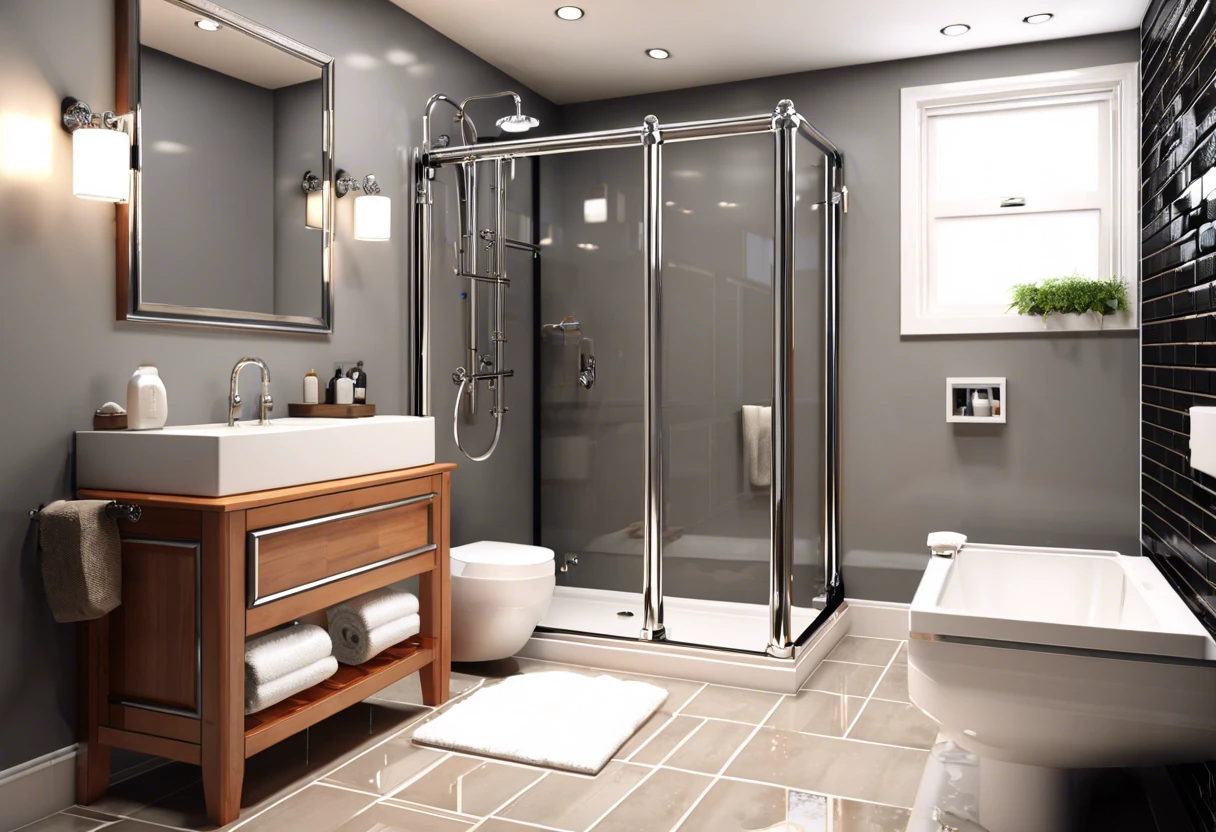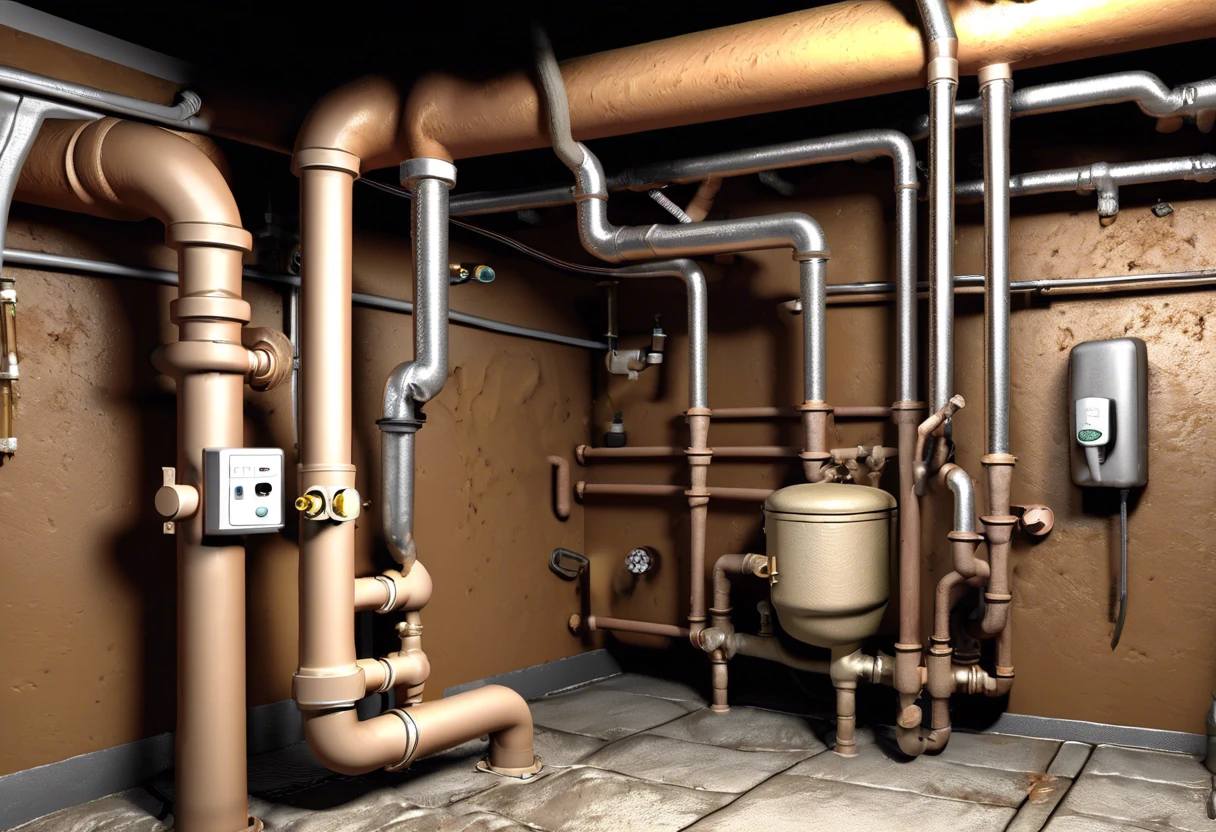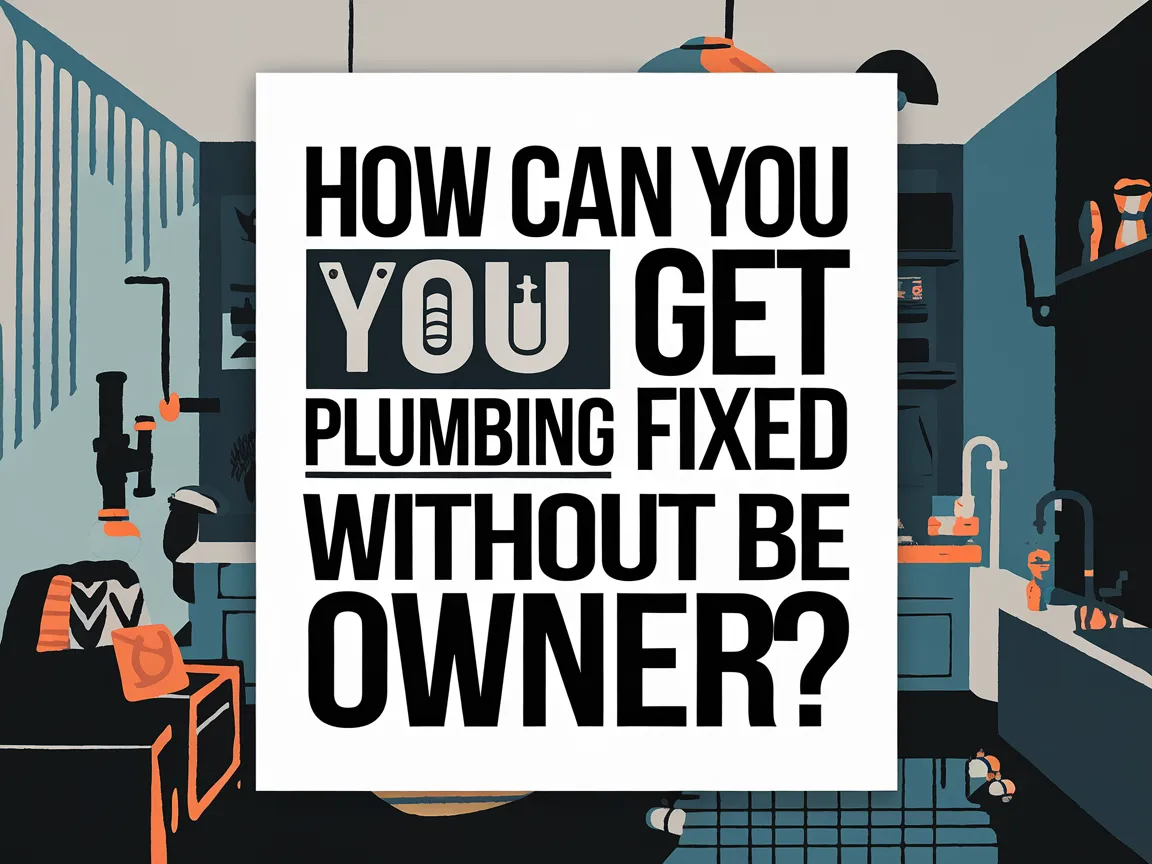How Long Does Plumbing Last? Exploring Lifespan, Costs, and Expert Advice
Published on: April 18, 2025 | Last Updated: April 18, 2025
Written By: anaheimplumbers
Ever found yourself wondering how long plumbing lasts? You’re not alone. Most homeowners in Anaheim Hills, like you, want to know just how long they can expect their pipes, fixtures, and other plumbing systems to perform without a hitch. It’s a burning question, especially if you’re facing potential leaks or clogs.
I totally get the stress that comes with plumbing worries. Knowing how long your plumbing can last will help you plan and maintain your system, ensuring you avoid unexpected costs and headaches down the line.
In this guide, I’ll walk you through some key points about plumbing longevity. We’ll cover various factors that influence how long plumbing lasts, the typical lifespans you can expect for different materials, and when you should reach out for expert help. So let’s dive in and get you the info you need!
Page Contents
- 1 How Long Does Plumbing Last?
- 2 Key Takeaways About Plumbing Longevity
- 3 Understanding Plumbing Lifespans and Influencing Factors
- 4 Factors Impacting the Lifespan of Plumbing Systems
- 5 Common Plumbing Materials and Their Expected Lifespans
- 6 Plumbing Lifespans in Various Contexts
- 7 How Cost Factors Into Plumbing Lifespan
- 8 When to Seek Expert Help for Plumbing Issues
- 9 Frequently Asked Questions About Plumbing Longevity
- 10 Final Thoughts on Plumbing Durability and Maintenance
- 11 Useful References for You:
How Long Does Plumbing Last?
The lifespan of plumbing systems is largely determined by the materials used and the maintenance practices employed. For instance, copper pipes can last up to 100 years if properly cared for, while PVC pipes may only last between 25 to 40 years. Regular inspections can help you spot issues early, ensuring your plumbing system lasts longer.
Key Takeaways About Plumbing Longevity
Here’s what you’ll learn about how long your plumbing can last:
- Common plumbing materials and their expected lifespans.
- Key factors influencing the longevity of your plumbing systems.
- Cost considerations for budgeting and timely maintenance.
- When it’s best to call in a plumbing expert for repairs or upgrades.
Understanding Plumbing Lifespans and Influencing Factors
When considering the longevity of plumbing systems, the choice of materials is paramount. For instance, copper pipes can endure for over 50 years with proper maintenance, while PVC pipes, known for their resistance to corrosion, typically last between 25 to 40 years. This variation in material durability can significantly impact the lifespan of your plumbing system. Additionally, it’s essential to consider the timeline for obtaining a plumbing license, as it can influence your ability to effectively maintain and manage these installations. To better understand the requirements and process involved, you can explore how long it takes to get a plumbing license in California while planning your future plumbing installations.
Common Issues Affecting Plumbing Lifespan
Environmental conditions can have a profound impact on plumbing longevity. For instance, if your plumbing is prone to freezing during those chilly California winters, it might not last as long as expected. A customer of mine on a higher elevation in Anaheim Hills experienced a leaking main line due to an uninsulated pipe that cracked during a cold snap. This highlights how neglecting environmental factors can drastically reduce the lifespan of your plumbing.
Regular Maintenance: Key to Prolonging Plumbing Life
Engaging in regular maintenance is critical to ensuring that your plumbing investment doesn’t deteriorate prematurely. I’ve seen customers who take a DIY approach often overlook the need for routine inspections, which can lead to significant problems down the line. Take, for example, a homeowner who skipped regular check-ups and subsequently dealt with corroded copper pipes. Ignoring these small issues can lead to larger, more expensive problems.
Your plumbing setup can generally last between 20 to 100 years, depending on various factors. In Anaheim Hills, specific environmental considerations such as soil composition and temperature fluctuations are particularly significant. Over time, mineral-heavy water can lead to clogs, and tree roots may infiltrate pipes if even minor cracks are overlooked. To ensure the longevity of your plumbing and maintain service quality, it’s essential to understand how to bid for plumbing jobs in your area. Whether you’re just starting out or seeking to refine your technique, mastering the art of bidding for plumbing jobs in Anaheim Hills can significantly enhance your competitiveness in the market.
Regular monitoring is essential. As a homeowner, don’t ignore small leaks, and invest in routine maintenance. It can save you a lot of trouble and expenses in the long run, ensuring that your plumbing remains functional and reliable.

Factors Impacting the Lifespan of Plumbing Systems
Understanding the factors that affect the lifespan of your plumbing can help you take proactive steps to extend it. Here are several crucial factors to keep in mind:
Water Quality and Its Effects
The quality of water in your area can significantly influence the longevity of your plumbing system. In Anaheim Hills, residents often encounter hard water, characterized by a high mineral content that can lead to scaling and buildup within pipes. This accumulation can restrict water flow and accelerate wear and tear on your plumbing. To ensure that your plumbing work is effective and compliant with local regulations, it’s essential to obtain the necessary permits before beginning any excavation project. Fortunately, the process for acquiring a plumbing permit for excavation in Anaheim Hills is straightforward. For detailed information on the specific procedures, you can refer to this article on how to obtain a plumbing permit.
Soil Conditions and Ground Movement
The type of soil through which your plumbing runs significantly affects its durability. Expansive soils, for instance, can shift and exert pressure on underground pipes, leading to cracks and leaks over time. Many homeowners situated on sloped or unstable ground experience plumbing issues as a direct consequence of these soil conditions. Therefore, it is essential to understand the potential risks involved in plumbing, particularly in areas with challenging foundations. You should be aware of how plumbing can pose dangers under certain conditions, ensuring that you take appropriate precautions.
Tree Roots and Landscaping
While beautiful landscaping can enhance your home’s aesthetic, tree roots often seek moisture and can infiltrate plumbing systems. In one project, I had to excavate a yard because roots had damaged sewer lines, illustrating the potential hazards of landscaping without consideration for plumbing systems.
Usage Patterns and Household Size
The number of occupants in a household and the frequency of plumbing usage can significantly affect the system’s longevity. For example, a family with multiple children might put more stress on plumbing fixtures, leading to accelerated wear and tear.
Common Plumbing Materials and Their Expected Lifespans
Selecting the right materials is essential for optimizing plumbing longevity. Here’s a summary of common plumbing materials and their expected lifespans:
| Material | Expected Lifespan (Years) | Pros | Cons |
|---|---|---|---|
| Copper | 50-100 | Durable & corrosion-resistant | Expensive & prone to theft |
| PVC | 25-40 | Lightweight & easy to install | Can warp under heat |
| PEX | 40 | Flexible & resistant to scale | Not suitable for outdoor use due to UV sensitivity |
| Galvanized Steel | 20-100 | Long-lasting | Can rust & corrode over time |
Choosing the right material is critical, and careful planning can help ensure optimal lifespan for your plumbing.
Plumbing Lifespans in Various Contexts
Understanding how long plumbing lasts in various settings can help you make informed decisions. Here’s a breakdown:
How Long Does Plumbing Last Outside?
Outdoor plumbing in California necessitates careful attention to corrosion risks and environmental conditions. While properly installed copper pipes can last approximately 50 years, aluminum pipes are less durable, typically surviving only 10 to 15 years due to their vulnerability to prolonged exposure. Understanding the lifespan of copper plumbing is crucial for effective maintenance and timely replacements. By knowing how long you can expect copper plumbing to last in your system, you can plan accordingly for future needs. For a deeper insight into the longevity of copper plumbing, be sure to check out how long copper plumbing lasts.
How Long Does Plumbing Last in Your House?
In a residential setting, proper maintenance can greatly extend the lifespan of plumbing systems. For instance, standard PVC plumbing typically lasts around 25 years, while copper pipes can endure even longer with appropriate care. A notable case involved a family who replaced copper pipes that had been in use since the 1970s. Understanding the nuances of finish plumbing can enhance your appreciation for the durability and upkeep requirements of your home’s pipes. To delve deeper into this type of plumbing, you can explore more about finish plumbing systems.
How Long Will PVC Pipe Last Underground?
When buried, PVC pipes can last between 25 to 40 years, especially when installed in well-draining soil to reduce the risk of root infiltration. Regular inspections are crucial for early detection of potential issues. As colder months approach, it becomes increasingly important to winterize your plumbing to prevent damage. For practical guidance on preparing your plumbing for winter, you can discover valuable tips by learning how to winterize plumbing in your home.
How Long Does Plumbing Last in Humid Environments?
In regions like Florida, the high humidity significantly impacts the lifespan of plumbing systems. Here, pipes typically endure only 15-30 years due to corrosion and wear from frequent storms. In contrast, the generally drier climate of Anaheim offers more favorable conditions for plumbing, leading to increased opportunities for maintenance and longevity. If you’re contemplating starting a business in this sector, it’s essential to explore the potential for expanding your services. Owning a plumbing and electrical business in Anaheim Hills can significantly enhance your offerings and help you differentiate yourself in a competitive market. For more insights on Anaheim Hills plumbing trends, it’s worth considering how local conditions can shape your business strategy.
How Long Does Plumbing Last in a House?
Within a house, plumbing materials will dictate longevity. For instance, PVC typically surpasses 25 years, contingent on variables like water pressure and quality.
How Long Does PVC Pipe Last Encased in Concrete?
PVC pipes that are encased in concrete can exceed 50 years if conditions remain stable. Water quality and soil characteristics must be monitored for optimal performance.
How Long Do PEX Pipes Last?
PEX pipes are a newer option that can last around 40 years. Their flexibility makes them ideal for various applications, especially in California homes, where resistance to scaling is an added advantage.

How Cost Factors Into Plumbing Lifespan
The initial investment in plumbing significantly impacts its long-term durability. While opting for lower-quality materials may save you money in the short term, it often leads to increased expenses down the line due to necessary repairs. For instance, one family chose budget plumbing solutions, only to face quicker system failures and mounting costs. A vital component in this equation is the house trap, which serves a crucial role in maintaining the efficiency and upkeep of your plumbing system. To learn more about what a house trap is and its importance for your plumbing, be sure to explore this insightful resource.
Plumbing Cost Breakdown
| Service Type | Low Estimate ($) | High Estimate ($) |
|---|---|---|
| Basic Repairs | 150 | 500 |
| Major Installations | 500 | 1,500 |
| Pipe Replacement | 1,000 | 3,000 |
| Emergency Services | 200 | 1,000 |
When to Seek Expert Help for Plumbing Issues
Plumbing can be a double-edged sword—manageable with proper care, yet capable of causing significant issues if neglected. If you notice signs such as puddles under sinks or strange gurgling noises, it’s crucial to contact a professional plumber immediately. Being aware of which plumbing pipes are problematic can help you avoid major repairs in the future. To gain a better understanding, you may want to explore which plumbing pipes are bad for your home.
When selecting an expert, look for someone localized to Anaheim Hills, as specific knowledge about regional plumbing quirks can save you time and money.
Benefits Of Hiring a Local Anaheim Hills Plumbing Expert
By hiring a local plumber, you not only support a community business but also gain access to professionals who are deeply familiar with local codes and plumbing regulations. This local expertise ensures that your plumbing is installed correctly, maintaining its integrity over time. In fact, I had the pleasure of collaborating with a local plumbing team during a major renovation, which truly highlighted the value of their insight in tackling community-specific plumbing challenges. Additionally, it’s important to understand that many plumbing tasks can be carried out without a formal license. This knowledge can help you save on costs and make informed decisions about your plumbing needs.
Frequently Asked Questions About Plumbing Longevity
I understand that plumbing issues can be stressful. Here are some FAQs that may help you:
How Do I Know if My Plumbing Needs Replacing?
Frequent leaks, rust stains, or drops in water pressure are key indicators that your plumbing may need replacing. Identifying these signs early can prevent further headaches and expenses.
How Often Should You Replumb a House?
Generally, consider replumbing every 20-50 years based on material types used. Staying informed about your plumbing’s condition is essential for its longevity.
What Factors Affect the Lifespan Of Plumbing Pipes?
Factors such as pipe material, water quality, and local weather conditions can heavily influence pipe lifespan. Understanding these can help guide maintenance efforts.
How Do I Know if My Pipes Are Old?
Check for visible signs like corrosion, leaks, or odd noises—these indicators can provide insight into your plumbing’s age and condition.
What Should I Do if My Plumbing Starts to Fail?
Address any plumbing failures immediately to avoid extensive damage. Prompt action is critical to minimizing potential plumbing disasters.
Can Low Water Pressure Indicate Plumbing Issues?
Yes, low water pressure may signal plumbing issues such as clogs or leaks. Keep an eye on water pressure to ensure your plumbing is functioning correctly.
How Can I Extend the Lifespan Of My Plumbing?
Regular maintenance and inspections are crucial for prolonging plumbing life. Proactive care helps catch potential issues early, saving you hassles down the road.
Does the Age Of a House Affect Plumbing Longevity?
The age of a home significantly influences the lifespan and effectiveness of its plumbing system. In older homes, outdated materials may necessitate vigilant management to prevent potential issues. Being mindful of your home’s age, along with any previous renovations, is essential for making informed maintenance decisions. Additionally, if you prefer certain brands of toilet paper, like Charmin, it’s important to recognize that they can occasionally cause clogs in older plumbing systems. To better understand the implications, you may want to investigate whether Charmin clogs plumbing and how this could affect your overall plumbing health.
Final Thoughts on Plumbing Durability and Maintenance
In summary, we discussed how long plumbing lasts, influencing factors, plumbing lifespans in various contexts, cost considerations, and when to seek expert help. Plumbing systems and their components can last anywhere from years to decades based on materials and conditions, and staying informed is key.
Don’t hesitate to reach out for assistance from qualified specialists. At Anaheim Hills Plumbers, our team offers professional expertise and help with any plumbing-related queries or issues.
Useful References for You:
- Building Division, City of Anaheim Hills Area Development Standards
- How Long Do Plumbing Pipes Last? | Caccia Plumbing
- How Long Should My Home’s Plumbing Last? | Robert Bair
- When Should I Replace My Old Plumbing? – Ranck Plumbing, Heating, AC & Excavation
- r/Plumbing on Reddit: Longevity of Copper Pipes?

